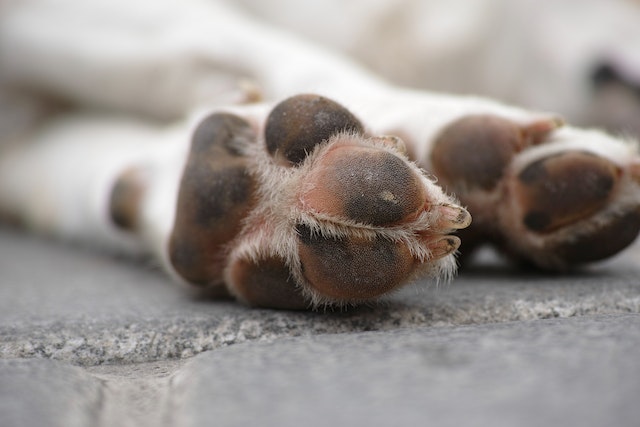Why Does My Beagle Shake [8 Reasons & Tips]
![Why Does My Beagle Shake [8 Reasons & Tips] Why Does My Beagle Shake](https://petcreeks.com/wp-content/uploads/2021/04/dog-5206460_640.jpg)
Beagle owners ask why does my beagle shake a lot and in this post, we will outline all the possible reasons why my beagle shakes and also dig into ways to go about my beagle shaking.
Beagles are generally known to be an active breed of dog that loves to play a lot be it with kids or other dogs or even with cats.
They are not known to be lazy dogs, they always want something thing do.
That is to say when your active beagle that has been running around or playing with other dogs begins to shake, then something is wrong somewhere and needs to be addressed.
Do not ignore your beagle when you see him or her shaking constantly even when it’s not necessary to shake.
So let’s look at some common reasons your pup is shaking.
Read more about: Why Do Beagles Bark So Much? 12 Reasons & How To Control Barking.
Why Does My Beagle Shake?
Since beagles are active dogs shaking and shivering can be symptoms of something serious such as poisoning, kidney disease, or injury.
If your beagle suddenly starts shaking or shivering, consider other symptoms, such as diarrhea, vomiting, or limping. Then talk to your vet right away.
Here are some reasons why your beagle is shaking or shivering some of which you have little control over them:
Signs of Toxins or Poisons
Some toxins or poisons are harmless to humans but toxic to your beagle for example the nicotine poisoning in beagles caused by cigarettes, xylitol the sugar substitute found in many chewing gums which is why chewing gums are bad for your beagle, these toxins or poisons can cause involuntary shaking and shiver in beagles.
In beagles and other dogs symptoms of poisoning or toxins may include tremors, weakness, disorientation, depression, drooling, vomiting, diarrhea, and seizures.
Therefore, if at any point in time, you think or observe your beagle has swallowed anything potentially toxic, please do not hesitate to take your beagle to the Vet.
Signs of Old Age
When beagles shake or shiver due to old age there is little to what you can do to help them, this is because their joints are weak and old such that they can no longer carry the weight of their body comfortably.
Most times when beagles get old there are chances of developing tremors in their hind legs as well as front legs, and this makes it difficult for them to walk well leading to shaking or shivering.
The only treatment is to stay in contact with your vet and avoid stressing out your beagle when they start getting old.
Learn more about older dogs shaking.
Signs of Nausea
In beagles involuntary shaking and shivering can be a sign of nausea which could result from sickness, effects of medication, too much eating, or eating toxic plants as well as from kidney or liver disease.
Some other symptoms of nausea in beagles that can cause involuntary shaking and shivering may include listlessness, lip-smacking, swallowing or salivating more than usual, hiding, yawning, and vomiting.
Treatment for nausea in beagles is best carried out by professional veterinary services.
Read more about How to train a beagle not to Run Away From Home
Signs of Seizure
Epilepsy is a neurological disorder that is common in beagles and can affect other dogs as well.
When beagles suffer from epilepsy they display lots of symptoms ranging from collapsing, jerking, stiffening, muscle twitching, loss of consciousness, drooling, tongue chewing, or foaming at the mouth.
Epilepsy can force a beagle to fall side and make paddling motions with its legs, therefore your beagle can be shaking because it has epilepsy.
Treatment of epilepsy in beagles may include medications to control seizures, such as Keppra, phenobarbital, or potassium bromide.
However, you should always have your beagle see your Vet once you notice shaking or shivering.
Read more about: Are Seizures Common in Beagles: Causes, Signs & Treatments.
Sign of Generalized Tremor Syndrome
Generalized tremor syndrome also known as steroid-responsive tremor syndrome or white shaker dog syndrome can be found mostly in medium-sized dogs or small dogs.
The generalized tremor syndrome was first observed in small and white dogs such as Maltese and West Highland white terriers, this health condition can occur in dogs of any size, breed, or color.
The main causes of generalized tremor syndrome are yet to be known among researchers, therefore no one knows what causes generalized tremor syndrome.
The symptoms of generalized tremor syndrome may differ from one dog to another but in beagles, it usually starts between 9 months and 2 years of age.
Treatment of generalized tremor syndrome in beagles is the same as in other dogs which generally consists of corticosteroids like prednisone.
Even though the results of the treatment can often be seen within a week of starting treatment. Always stay close to your Vet.
Read more about How to take good care of a Beagle: Best 14 Ways.
Signs of Distemper
![Why Does My Beagle Shake [8 Reasons & Tips] Signs of Distemper](https://petcreeks.com/wp-content/uploads/2021/04/dog-5211791_640.jpg)
Distemper is a health condition in beagles and other dogs that is caused by a virus, and it occurs most often in puppies and adolescent beagles that were not fully vaccinated.
Distemper is one of the common causes of involuntary shaking and shivering in beagles and most other dogs.
Other symptoms of distemper in beagles may include eye and nose discharge, fever, and coughing.
In beagles treating distemper generally involves supportive care while your dog’s immune system fights the virus, and also staying in contact with your Vet.
Treatment of Distemper in beagles or other dogs may also include antibiotics, airway dilators, physical therapy, and fluids to help manage dehydration.
Signs of Pain
Beagles are among the top active breed dogs and shivering or shaking could be a sign that your beagle is in pain or suffering from an illness.
Shaking, shivering and muscle tremors can be symptoms of serious conditions such as distemper, hypoglycemia, Addison’s disease, and inflammatory brain disease, as well as more common ailments like an upset stomach.
Too many pains can cause a beagle to constantly shake or shiver, so always pay close attention to your beagle when you notice involuntary shaking.
Therefore, shaking may be a prominently visible symptom that your beagle is exhibiting to tell you that something is indeed wrong.
Read more about How to Keep Beagle From Shedding: 13 Easy Ways.
Sign of Cold
When the weather is below the required temperature it affects all warm-blooded animals and beagles and humans are definitely one of them.
You need to check if your beagle’s temperature has dropped from 100.5 and 102.5 degrees Fahrenheit heading towards 50 to 60 degrees and if that is the case sort out the cause of the drop in temperature.
If you can’t figure out the cause do not hesitate to rush your beagle to the vet if you have tried warming up your room and the shaking continues.
When you should be concerned about your beagle shaking
If your Beagle is shaking occasionally or moderately, it may not necessarily be a cause for concern.
However, if the shaking is persistent, severe, or accompanied by other symptoms such as lethargy, loss of appetite, or vomiting, it would be best to take your beagle to the vet as soon as possible.
Persistent shaking may indicate a serious underlying medical condition, such as pain or discomfort, ear infections, or neurological problems.
Therefore, if you notice that your Beagle is shaking persistently, particularly if it is accompanied by other worrying symptoms, consulting a veterinarian would be the best course of action to take.
Learn more about some benefits of regular vet visits.
Frequently Asked Questions
Why does my beagle shake its head all the time?
Beagles are prone to ear infections, which can cause them to shake their heads for relief.
It’s important to regularly check and clean your beagle’s ears to prevent infections.
Why does my beagle shake when it’s not cold?
Beagles can shake for many reasons, including discomfort, anxiety, and excitement.
If your beagle is consistently shaking and the temperature is warm, it’s best to take them to the veterinarian to determine if there’s an underlying medical issue.
Why does my beagle shake when it’s excited?
Beagles can shake when they’re excited or hyped up because of the adrenaline in their system.
It’s perfectly normal behavior and nothing to be concerned about.
Why does my beagle shake when it’s scared?
Beagles can shake when they’re scared or anxious because of the fight or flight response in their body.
If your beagle is shaking due to fear or anxiety, it’s important to provide comfort and training to help them manage their stress.
Why does my beagle shake after a bath?
Beagles can shake after a bath to try and remove the water from their coat.
It’s a natural behavior and nothing to be concerned about.
Just make sure to dry your beagle’s coat thoroughly after a bath to prevent them from getting cold.
Why does my beagle shake when it’s in pain?
Beagles can shake when they’re in pain as a way of signaling their discomfort.
If you notice your beagle shaking and showing other signs of distress, such as whimpering or avoiding movements, it’s important to take them to the veterinarian to identify the source of the pain and provide appropriate treatment.
Conclusion
In conclusion, if you’re wondering why your beagle shakes, there could be a variety of reasons.
From excitement to anxiety, cold weather to medical issues, it’s important to observe your dog’s behavior and consult with a veterinarian if you have concerns.




![Anxiety In Dogs [Causes, Signs, & Remedies] Anxiety In Dogs](https://petcreeks.com/wp-content/uploads/2023/12/simon-hurry-_LhjpmruUAo-unsplash.jpg)

